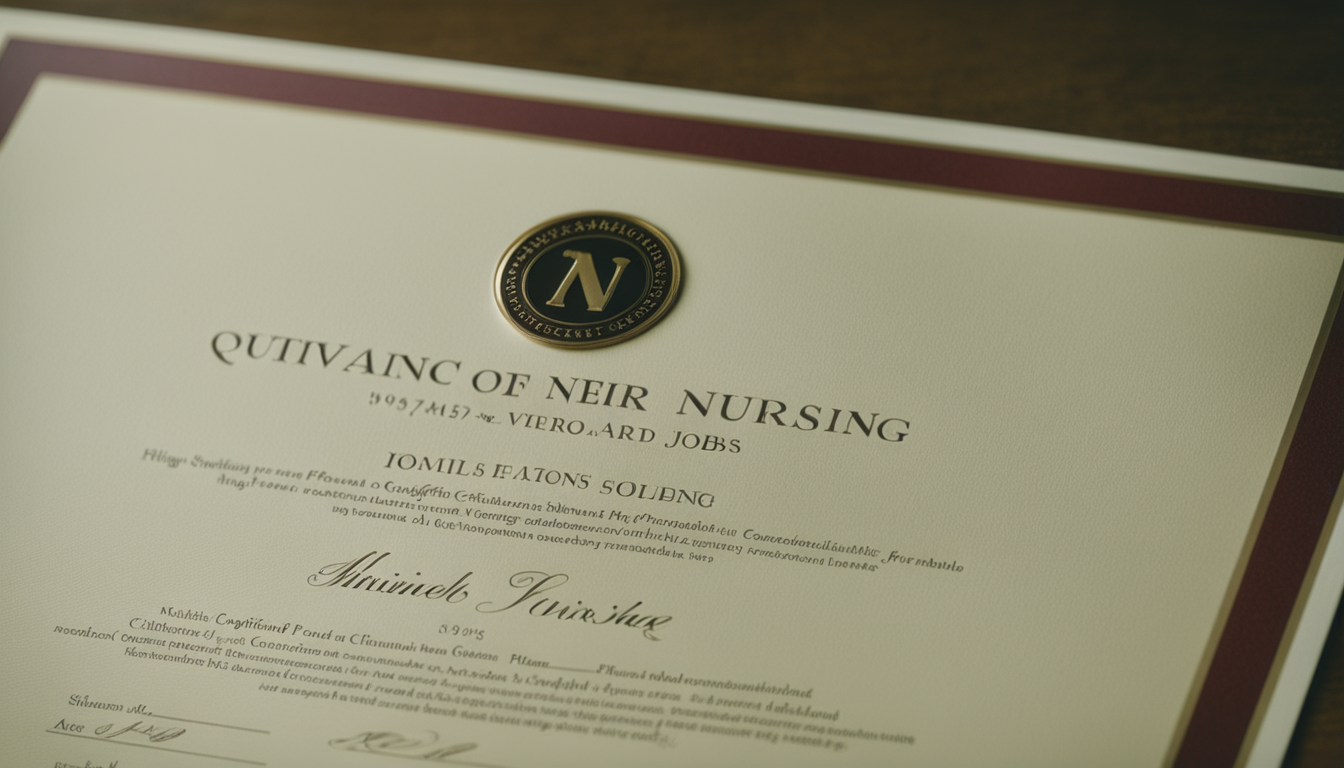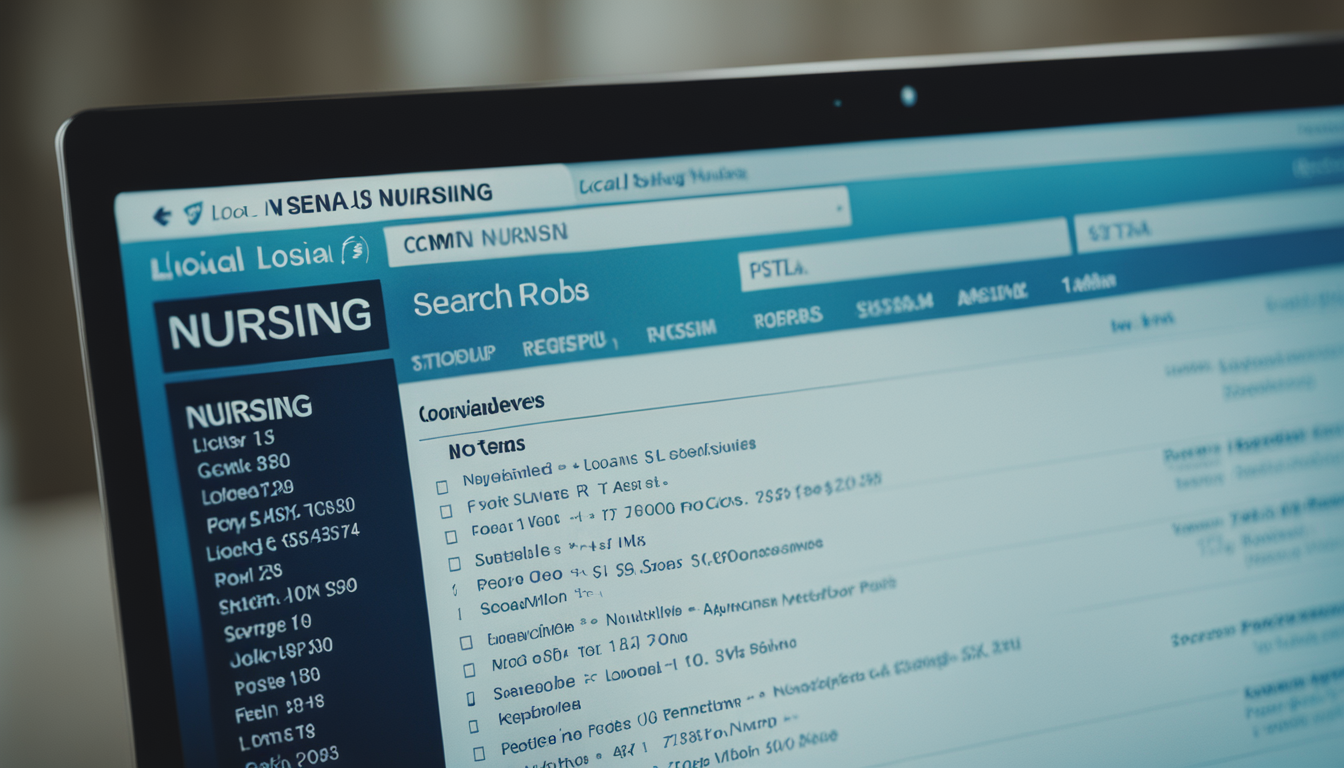Introduction to Healthcare Insurance Marketplace

Diving headfirst into the world of the healthcare insurance marketplace can be a daunting prospect. From understanding the basic structure of this complex arena to grasping the integral role an insurance nurse plays, it’s a multifaceted journey. This blog is your guide to decoding the critical elements of this marketplace, particularly the symbiotic relationship between an insurance nurse and the policyholder. Working closely with an insurance nurse can offer numerous benefits, from efficiency and cost savings to emotional support and understanding. And do you know what makes this relationship truly effective? Open communication! By the end of this blog, you’ll realize that an insurance nurse isn’t just a faceless representative of your insurance plan; they are an ally who can help you leverage the healthcare insurance marketplace to your advantage in a myriad of ways. We’ll explore how to maximize your benefits, navigate policy fine print, and even debunk common misconceptions about insurance nurses. Buckle up, because we’re about to make the healthcare insurance marketplace work for you!
Understanding the Role of an Insurance Nurse

The role of an insurance nurse incorporates multiple nuances, making them a crucial part of the healthcare insurance marketplace. They are at the heart of the relationship with the policyholder, exerting expertise in assessment, planning, and facilitating various healthcare operations to ensure optimum health outcomes. For instance, they invest a considerable amount of effort into critical tasks, such as managing high-risk patients, coordinating care and resources, and promptly responding to medical emergencies. They are also highly involved in acute care settings, monitoring patients’ overall well-being, facilitating recovery plans, and mitigating the risk of potential complications.
Nursing professionals have always prioritized the health, safety, and comfort of their patients and the same applies to insurance nurses. Their role offers significant advantages to the policyholder, going beyond healthcare provision to becoming a robust support system, especially when navigating complex healthcare decisions and needs. Their understanding of the insurance intricacies can lay a solid foundation to demystify the complex world of health insurance. These nurses can guide policyholders to utilize the benefits to their maximum possible extent, ensuring comprehensive healthcare coverage. For example, they might suggest preventive measures for a policyholder with a chronic condition, ensuring that the person stays healthy and avoids costly hospital visits. Moreover, they are skilled advocates who voice out the needs of policyholders, acting as their liaison between doctors and insurance companies to manage and adjust care plans as necessary.
Benefits of Working with Your Insurance Nurse

Your insurance nurse plays a crucial role in your healthcare journey. These professionals serve as helpful guides in understanding and navigating what can be the complex world of the healthcare insurance marketplace. They help you make more informed choices and decisions about your healthcare which can ultimately lead to cost savings and more efficient use of your health insurance resources. For instance, they might advise on appropriate preventive care measures covered under your plan, which can prevent costly treatments down the line.
Beyond the roles of information guide and efficiency expert, your insurance nurse also offers invaluable emotional support and understanding. This aspect of their role goes above and beyond managing your insurance, forming an emotionally supportive bridge between policyholders and the healthcare industry. For individuals dealing with chronic illness or navigating complicated treatments, the compassionate guide of an insurance nurse can provide emotional comfort and ease apprehensions.
Furthermore, they often act as patient advocates, negotiating the often convoluted interfaces between health providers, insurance companies, and the policyholders. They can help minimize unnecessary hospitalizations or prevent a policyholder from receiving redundant tests. By understanding your personal healthcare journey, the insurance nurse can ensure you’re receiving optimal care, while avoiding overspending on unnecessary services or procedures. An example here would be a nurse coordinating with doctors to consolidate treatments into a single visit, making it more cost-effective and convenient for you.
How to Establish Effective Communication with Your Insurance Nurse

Maintaining a consistent, open line of communication with your insurance nurse is crucial in efficiently navigating the healthcare insurance marketplace. Here’s why: these healthcare professionals act as your liaison, facilitating the interaction with insurance companies and ensuring you get the benefits you are entitled to. They are well-versed in the intricate details and fine print of insurance policies which can be overwhelming for many policyholders. Providing them with clear and accurate information about your health condition and needs will enable them to serve you better.
But how do you foster such communication? Start by clearly stating your concerns, questions, or areas where you need their help. Always remember that there is no such thing as too much information when it comes to your health. Don’t hesitate to ask for clarification on any policy particulars or procedures you don’t understand. Also, ensure you understand and effectively use the technology platforms your insurance nurse uses for communication, whether it’s email, a secure messaging portal, or even video conferencing.
Finally, maximize your interactions to draw the most benefit from your relationship with your insurance nurse. While they are focused on your care, they can also provide emotional support and insight into complex situations, making them a valuable partner in health-related decisions. This supportive dynamic, anchored by effective communication, allows you to get the most out of your healthcare benefits while minimizing confusion and frustrations that often come with dealing with insurance matters.
Maximizing Your Insurance Benefits in the Healthcare Insurance Marketplace

To get the most out of your healthcare insurance benefits in the marketplace, adopting various strategies is key. This includes leveraging the knowledge and expertise of your insurance nurse, who can provide guidance on understanding the dynamics of the marketplace and how to maximize your benefits. For example, they can walk you through the fine print of your insurance policy and help decode the complex terms.
Deepening your understanding of your insurance coverage is another essential. Be sure to comprehend the full scope of your plan and its limitations. This might involve your insurance nurse explaining the intricacies of your policy, including any exclusions, limits, and the specifics of co-pay and deductible requirements.
The insurance nurse’s role extends further than advice. They play a key role in maximizing your benefits within the healthcare insurance marketplace. With their knowledge of the system, they can guide you on how to fully exploit your policy and possibly even help find ways to fill any gaps in your coverage.
However, understanding the marketplace dynamics and their impact on your benefits is equally important. For instance, frequent changes within the marketplace can affect the policies and benefits of your insurance. Therefore, it’s important to stay abreast of these updates with your insurance nurse.
Ultimately, navigating the fine print of your insurance policies is essential to maximize your benefits effectively. While initially this may seem tedious, an insurance nurse can help illuminate unclear portions of your policy, ensuring you fully grasp your benefits and consequently, make the most of them in the healthcare insurance marketplace.
When to Consult Your Insurance Nurse

Understanding when to consult your insurance nurse is crucial to manage your health effectively. Some situations may call for an immediate consultation with your insurance nurse, such as understanding intricate insurance terminology or comprehending the fine print of your insurance policies. Navigating your health insurance can be daunting, and the expertise of insurance nurses will prove to be valuable in such scenarios. They can help you decode complex clauses, provide clarity, and help you make informed decisions. For instance, if you encounter new terms in your policy document that you can’t comprehend, or there are discrepancies you can’t reconcile, don’t hesitate to reach out to your insurance nurse. Their profound knowledge will enable you to grasp the full scope of your coverage and benefits, facilitating efficient utilization of your healthcare insurance.
An Overview of Key Healthcare Insurance Marketplace Terminologies

Understanding healthcare insurance marketplace terminologies can feel like navigating a foreign language. These key terms are not merely jargon, they are essential components of your policy that influence your coverage and the benefits you receive. Common terms such as “premium,” “deductible,” “copayment,” and “out-of-pocket maximum” directly impact the costs you’ll encounter through the terms of your policy.
Grasping these terms will prove instrumental in assessing your policy and insuring optimum benefits. For instance, a lower premium might seem attractive but could mean higher out-of-pocket costs when care is needed. Being conversant in these terms can assist you in negotiating with providers, making informed choices about your health, and enabling productive communication with your insurance nurse to make full use of your insurance coverage.
Common Misconceptions About Insurance Nurses

Contrary to popular belief, insurance nurses are not just policy enforcers assigned by insurance companies. This widespread myth clouds the authentic purpose and valuable contributions these healthcare professionals bring to the insurance marketplace. Insurance nurses act as patient advocates, facilitating optimal care provision while ensuring economic utilization of resources. They blend their clinical skills with insurance knowledge to not only promote health but also decipher the complex and at times, confusing world of insurance claims and policies.
Dispelling the unjust misconceptions around their roles enables a more effective utilization of their expertise. To portray their true scope of responsibilities: they guide patients in understanding insurance benefits, engage in health education, and provide emotional support during challenging times in a healthcare journey. They operate within the intricate webs of health and policy to enhance patient experience and drive efficient healthcare delivery. Making full use of their services will ultimately result in enhanced patient satisfaction and fair economic outcomes in the healthcare insurance marketplace.
Avoiding Common Problems in Healthcare Insurance Marketplace

The landscape of the Healthcare Insurance Marketplace is fraught with potential challenges. These could range from misunderstanding contract details to failing to identify potential savings. Recognizing these pitfalls and their remedies can prove invaluable. The guidance of an insurance nurse, who is adept at spotting and averting these issues, can prove invaluable in this regard. Their role in forestalling these problems is pivotal, ensuring a seamless usage of your healthcare insurance.
Having a prepared mindset towards unexpected challenges in the Healthcare Insurance Marketplace is also necessary. This preemptive approach, under the mentorship of your insurance nurse, helps create a clear strategies s to navigate such challenges. Implementing this not only resolves current issues but also help in stoically addressing future potential problems.
Finally, ensuring your insurance plan aligns with your health goals is integral to your overall wellness plan. A misalignment could lead to insurance coverages that don’t adequately meet your health needs. Here again, your dedicated Insurance nurse plays a significant role in creating an optimal harmony between your health goals and insurance coverage. They are instrumental in maintaining a health-insurance synergy tailored to your requirements.
Ensuring Your Health Goals Align with Your Insurance Plan

Understanding the connection between your health goals and insurance coverage is vital. This fusion is how insurance nurses bring value to your health plan. They act as a liaison, integrating your health-related aspirations with the specifics of your policy. Look at it this way – if you are committed to improving your fitness levels, an insurance nurse can guide you towards wellness programs that your policy covers.
Furthermore, insurance nurses go above and beyond to align these two crucial aspects of your health journey. Their expertise allows them to navigate the complexities of insurance plan, selecting the best routes according to health objectives. For example, if managing a chronic disease, they will ensure your plan supports necessary medications and treatment plans. This shows exactly how insurance nurses act as a crucial bridge, bringing coherence between your health goals and insurance plan.
How Your Insurance Nurse Can Help You Understand Your Policy

Insurance nurses play a critical role in making often complex healthcare policy terms more comprehensible. They engage in patient education efforts that greatly assist policyholders in understanding their insurance plan’s nitty-gritty, breaking down the intricate language into layman’s terms. Favored for their approachable aura, insurance nurses clarify doubts and reduce the ambiguity surrounding policies. By easily translating policy language, these professionals bridge gaps for individuals who might otherwise be intimidated or overwhelmed by insurance jargon. Consequently, the policyholders make more informed, optimal decisions about their health coverage and benefits.
Tips to Keep Your Health Insurance Cover Optimal in the Marketplace

Begin by staying informed about marketplace dynamics, as they can impact your coverage. Keep track of shifts in the marketplace and respond accordingly to ensure your health insurance cover remains optimal. For example, if a new policy with better benefits appears, don’t hesitate to switch.
Direct involvement in the marketplace is critical for maintaining the best insurance coverage. Constant engagement lets you recognize fast-changing trends and react swiftly. For instance, during an open enrolment period, review your plan and make adjustments if needed.
Lastly, regularly consult with your insurance nurse. They are well-versed with marketplace nuances and can suggest effective tactics to optimize coverage. They can guide you through complexity, ensuring you’re always covered to the maximum possible extent.
Case Study: Effective Utilization of An Insurance Nurse

In one illustrative case study, a patient significantly benefitted by utilizing the help of their insurance nurse. The insurance nurse provided useful, real-world advice about the healthcare insurance marketplace and helped the patient understand the specifics of their policy. This resulted in the patient making better-informed decisions regarding their health coverage and more effectively using their benefits. Always available for support and guidance, the insurance nurse played an invaluable role in helping the patient navigate the intricacies of their coverage. This proactive collaboration led to both monetary savings and better health outcomes.
Learning to Advocate for Yourself in the Healthcare Insurance Marketplace

Boosting your self-advocacy skills in the healthcare insurance landscape can significantly shift your experiences, making dealings with insurance issues less daunting. For instance, learning the ins and outs of your policy, asserting your needs, and striving for transparency can equip you with the confidence and knowledge necessary to navigate this realm effectively.
In this journey, your insurance nurse is your ally, playing an instrumental role in empowering you. They help demystify complex terms, guide through challenging medical situations, and more importantly, they give you greater ownership of your health decisions, instilling you with courage to ask questions and challenge decisions when necessary.
Checklist: Working with Your Insurance Nurse

Maintaining a harmonious relationship with your insurance nurse is key in navigating through the healthcare insurance marketplace effectively. One should value open and frequent communication, allowing the nurse to explain complex policy terms and guide you in accordance to health goals. An insurance nurse can help recognize and adapt to marketplace changes and champion your cause, thus becoming an indispensable ally in ensuring your health insurance remains optimal.
Conclusion: The Value of an Insurance Nurse in the Healthcare Insurance Marketplace

Harnessing the expertise of an insurance nurse greatly impacts one’s healthcare journey in the insurance marketplace. Their diverse role aids not only in understanding complex terminologies and policies but also in utilizing the benefits to a maximum extent. Their emotional support, alongside a proactive approach to potential issues, fosters a strong relationship with policyholders. As essential navigators, their presence amplifies patient education, fuels self-advocacy, and ensures optimal insurance coverage, thus underscoring their significance in the healthcare insurance marketplace.
Sources:
- http://www.healthcare.gov
- National Association of Healthcare Advocacy
- The Role of the Nurse in Health Insurance by John L. Romley
- Health Insurance Handbook by Catherine Hoffman
- Healthcare Marketplace by Kaiser Family Foundation




















